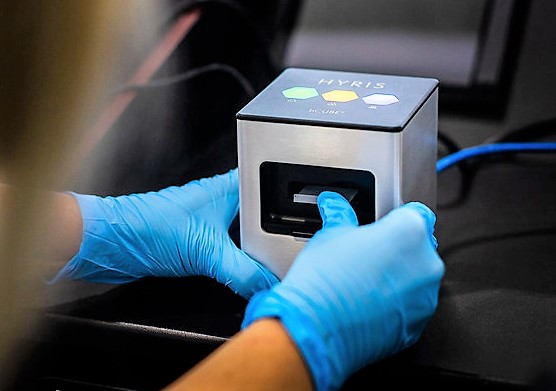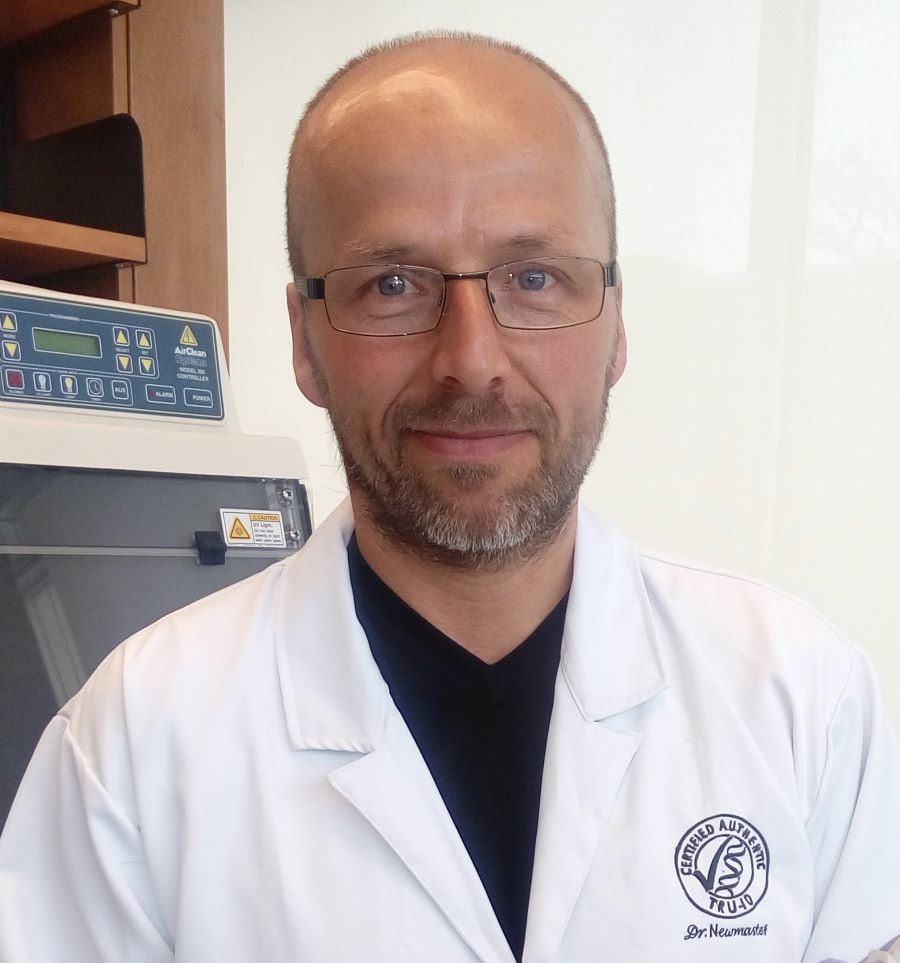
A portable, inexpensive diagnostic test kit for COVID-19 based on University of Guelph research is being used to confirm coronavirus infection in patients in Europe and to detect the virus on surfaces and products from hospitals to grocery stores in the United States.
The technology can analyze DNA from a patient’s cheek swab to provide test results in an hour, much faster and easier than many current detection methods, said Prof. Steve Newmaster, a plant biologist and member of U of G’s Biodiversity Institute of Ontario (BIO).
Using samples taken from patients or swiped from surfaces and products, the test kit made by Hyris Global Diagnostics in Milan, Italy, can detect genetic material from the novel coronavirus. The material is scaled up for analysis using PCR (polymerase chain reaction) technology and screened in the company’s bCUBE, a palm-sized box that can analyze 16 samples at once.
“I call it an Easy Bake Oven,” said Newmaster. “There’s one door. You shove in a cartridge, there are no bells or whistles, everything is inside.”
Test results, along with date and GPS information, are sent to a cloud-based data bank for instant retrieval by clinicians or researchers anywhere in the world.

“It’s portable and connected to the cloud so it puts results in health-care workers’ hands immediately,” said Newmaster, adding that he has retrieved sample information on his cellphone to trace infection patterns in China and Italy while sitting in airports in the United States.
The technology is among many products now being developed worldwide as researchers at academic institutions and companies – including U of G affiliates — seek faster, cheaper diagnostic testing to stem the spread of the current pandemic.
The molecular diagnostic kits made by Newmaster and his colleagues were among various testing methods used to confirm coronavirus infections in Italy as the country went into lockdown in early March. Since then, the technology has been used by clinicians to test patients in numerous European Union countries.
Researchers at U of G and worldwide have developed DNA barcoding reference resources to identify species of organisms, used in everything from authenticating foods and ingredients to conserving endangered animals.
“The whole mandate of the BIO has been to build DNA sequence libraries and develop diagnostic tests,” said Newmaster. “The idea is to identify something quickly. Here it’s to identify a coronavirus-infected patient.”
With dozens of different testing products becoming available in the U.S., Newmaster said, his team is now focusing in North America on environmental testing for the virus on surfaces in public places and on products such as imported goods.
Pointing to earlier research that showed the virus can linger for a time on high-traffic items such as doorknobs and shopping cart handles, he said tests of surfaces in Guelph and in cities in Italy and the U.S. showed no signs of the virus.
That’s a good sign, said Newmaster. “We have no positive results from hundreds of tests in public areas. That’s probably because people are sanitizing. If you spray live virus on a doorknob, it will come up positive.”
He said companies have contacted him to obtain the kits to test items for COVID-19 themselves or for client organizations.
Referring to his U of G research team and their international collaborators, he said, “This is a way to use our skills to help at a time when society needs help.”
Contact:
Prof. Steve Newmaster
snewmast@uoguelph.ca